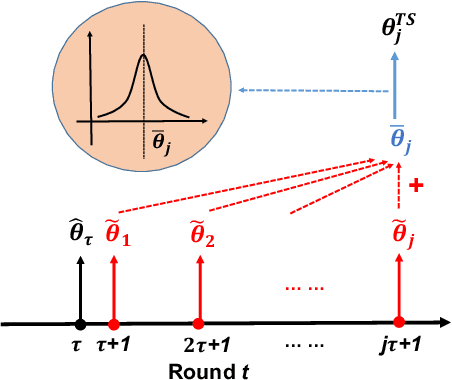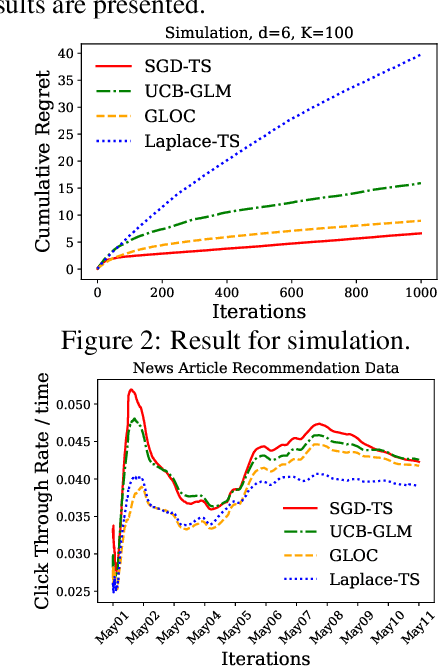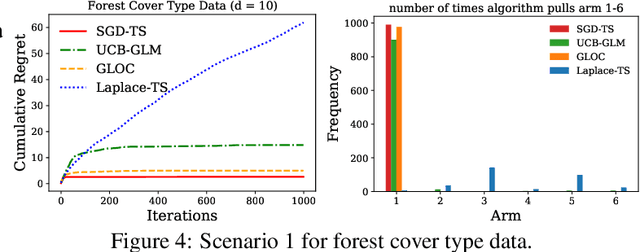An Efficient Algorithm For Generalized Linear Bandit: Online Stochastic Gradient Descent and Thompson Sampling
Paper and Code
Jun 07, 2020



We consider the contextual bandit problem, where a player sequentially makes decisions based on past observations to maximize the cumulative reward. Although many algorithms have been proposed for contextual bandit, most of them rely on finding the maximum likelihood estimator at each iteration, which requires $O(t)$ time at the $t$-th iteration and are memory inefficient. A natural way to resolve this problem is to apply online stochastic gradient descent (SGD) so that the per-step time and memory complexity can be reduced to constant with respect to $t$, but a contextual bandit policy based on online SGD updates that balances exploration and exploitation has remained elusive. In this work, we show that online SGD can be applied to the generalized linear bandit problem. The proposed SGD-TS algorithm, which uses a single-step SGD update to exploit past information and uses Thompson Sampling for exploration, achieves $\tilde{O}(\sqrt{dT})$ regret with the total time complexity that scales linearly in $T$ and $d$, where $T$ is the total number of rounds and $d$ is the number of features. Experimental results show that SGD-TS consistently outperforms existing algorithms on both synthetic and real datasets.
 Add to Chrome
Add to Chrome Add to Firefox
Add to Firefox Add to Edge
Add to Edge